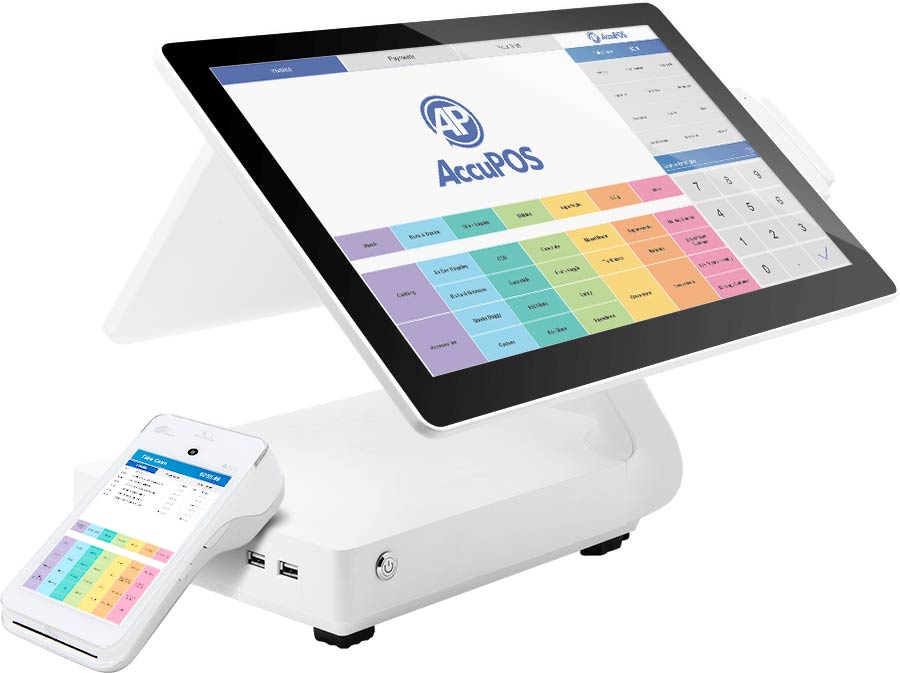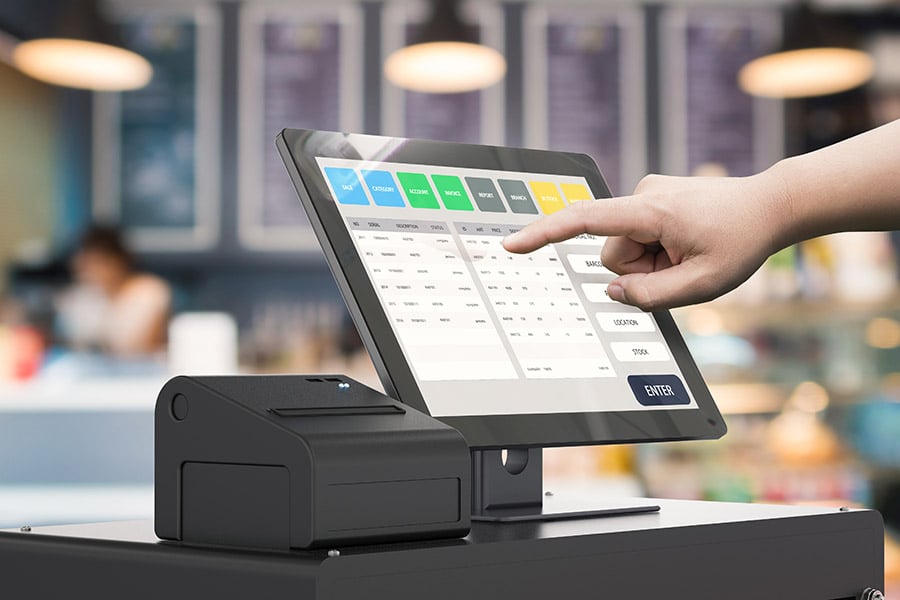How Pos Systems can Save You Time, Stress, and Money.
How Pos Systems can Save You Time, Stress, and Money.
Blog Article
Point Of Sale Systems - An Overview

Clover POS: Retail Point-Of-Sale Solutions Streamline Deals
Pos for Dummies

Hardware Components of a Point of Sale System What makes a POS system tick? It's not just software; the hardware plays a starring role. Consider it as the body to the software's brain. Without the best hardware, even the most sophisticated POS software application is just a quite face. Important POS Hardware So, what are the must-haves? Let's simplify. The central processing unit, often a computer system or tablet, is the heart of the operation. The monitor or touchscreen show allows staff to communicate with the system. A barcode scanner accelerate the checkout process. Keep in mind the days of by hand going into each code? The dependable receipt printer supplies customers with a record of their purchase. A cash drawer keeps your money safe and arranged. A card reader enables customers to pay with credit or debit cards. Diving Deeper: Beyond the Fundamentals But wait, there's more! Depending on your business, you might require specialized hardware. For instance, a dining establishment may read more include cooking area printers to relay orders, while a store may utilize label printers for product tagging. Ever question how your regional bakeshop quickly prints those delicious-looking labels? Choosing the Right Hardware: A Balancing Act Selecting the ideal hardware isn't practically buying the most costly devices. It's about discovering the sweet area in between functionality, sturdiness, and spending plan. A small organization simply beginning might select a more basic setup, while a high-volume retailer will require robust, high-performance makers. Is it much better to buy brand-new or used? Consider your options thoroughly. A new system provides the newest innovation and warranty security, but a refurbished system can conserve you money. The Future of POS Hardware What does the future hold? Anticipate to see much more integration with mobile gadgets, biometric scanners for worker authentication, and advanced analytics control panels displayed on bigger, clearer screens. Imagine a world where inventory is automatically upgraded in real-time as items are scanned-- a world where you can track your very popular product from throughout the world. The possibilities are limitless, and the hardware is constantly evolving to fulfill the demands these days's businesses. Are you prepared to upgrade your point of sale system?
Software Features and Capabilities: The Heart of Your POS System
Ever watch a skilled barista slide through a busy morning rush? Their secret isn't simply caffeine; it's a seamless dance with their POS system. The software application is the conductor of your organization symphony, managing whatever from sales to stock. But what notes should you be listening for? What abilities really matter in today's market?
Inventory Management: Beyond Counting Beans
Forget spreadsheets that haunt your dreams. Modern POS systems offer real-time inventory tracking, informing you when your stock of artisanal coffee beans dips precariously low. Think of it as a digital guardian angel, preventing those uncomfortable "Sorry, we're out!" minutes to customers. What if you could also forecast demand based upon historical data? Numerous systems now provide forecasting tools, an effective weapon versus overstocking and lost sales. This helps prevent the circumstance of running out of popular products or accumulating excess stock of slow-moving products, both of which can constrain cash circulation and space.
Sales Reporting and Analytics: Translating the Information
Sales information is the new gold, and your POS system is the miner. Forget simply understanding just how much you sold today. Dive deep into the data to uncover trends, recognize your very popular products, and comprehend client habits. Which menu product sets completely with the everyday special? Which promotion resonated most with your clientele? These insights are not simply interesting; they're actionable intelligence. Without trustworthy sales reporting, browsing the intricacies of service decision-making ends up being like cruising without a compass, increasing the chance of errors and missed chances.
Consumer Relationship Management (CRM): Structure Bridges, Not Walls
Keeping in mind a regular consumer's name and favorite order is lovely, but scaling that individual touch is challenging. POS systems with CRM abilities enable you to track customer purchase history, choices, and even birthdays. Envision immediately providing a discount on their birthday-- a little gesture that cultivates loyalty and encourages repeat service. But there is the possible snag of poor data quality, which can cause unreliable consumer profiles and inefficient marketing efforts.
Payment Processing: Enhancing the Deal
The checkout experience can make or break a sale. Smooth integration with various payment approaches-- credit cards, mobile wallets, even copyright-- is non-negotiable. Can your system manage split payments? Does it provide safe tokenization to safeguard client data? A clunky payment process resembles hitting a sour note in your business symphony, potentially disrupting the entire efficiency. Guaranteeing compatibility with progressing payment innovations and adherence to security standards are vital for maintaining consumer trust and functional efficiency.
Staff Member Management: Keeping the Team in Sync
From clocking in and out to handling consents and tracking efficiency, staff member management features improve operations and enhance responsibility. Is scheduling a nightmare? Numerous POS systems provide incorporated scheduling tools, optimizing staffing levels based upon anticipated demand. A common challenge that is frequently neglected is the difficulty of integrating worker management functionalities with payroll systems, which can result in errors and inadequacies in wage computations.
Advanced Features: Leveling Up Your Operations
- Table Management: Ideal for dining establishments, this function allows you to visualize your dining-room, track table status, and handle appointments.
- Commitment Programs: Reward your finest consumers and motivate repeat service with incorporated commitment programs.
- Online Buying Integration: Perfectly integrate your POS system with online ordering platforms to broaden your reach.
Selecting the best POS system has to do with more than simply performance; it has to do with finding a partner that can grow with your service. Consider your current needs, expect future development, and do not be scared to ask the hard questions. The right software application can change your organization from a chaotic cacophony into a harmonious masterpiece.
Industry-Specific POS System Applications
Believe of the regional bakery, busy with morning consumers craving fresh croissants. A generic POS system might handle deals, but can it handle complex dishes, track component inventory, or automatically adjust production schedules based upon sales information? Most likely not. That is where the charm of industry-specific POS systems shines.
Dining establishments and Hospitality
For bustling dining establishments, speed and precision are vital. The number of times have you seen servers juggling orders, adjustments, and splitting bills, all while trying to provide excellent service? A dining establishment POS system enhances these procedures, enabling table management, kitchen order tickets, and even online purchasing integration. These systems often include functions like ingredient-level stock tracking, important for handling food expenses and lessening waste. Ever wonder why your preferred meal is often not available? It may stem from a lack of proper stock management.
- Table Management
- Kitchen Order Tickets
- Online Purchasing Combination
- Ingredient-Level Inventory Tracking
Retail Solutions
Retail, with its diverse inventory and client interactions, requires a different set of tools. Imagine a store clothing store having a hard time to track sizes, colors, and seasonal collections utilizing a standard checkout system. An industry-specific retail POS system uses features like barcode scanning, consumer commitment programs, and detailed sales reporting. These systems can even integrate with e-commerce platforms, offering a smooth omnichannel experience for clients. Did you know some retail POS systems can predict future sales trends based upon historical information? Now that is powerful!
The Hazards of an Inequality
Choosing the wrong POS system can create significant functional hurdles. A clothing boutique using a restaurant POS, for instance, would find it inappropriate for handling stock with sizes and colors. The lack of appropriate reporting and analytics could lead to misinformed getting choices and lost profits. The result might be comparable to attempting to fit a square peg in a round hole.
Secret Factors to consider
Picking an industry-specific POS system requires cautious evaluation. Think about your service's unique needs and operational workflows. Does the system integrate with existing software application? Does it offer the required reporting capabilities? Is it scalable to accommodate future growth? A well-chosen POS system is not simply a transaction tool; it's a tactical property that can drive effectiveness, improve client complete satisfaction, and ultimately, increase your bottom line. Remember, it is a financial investment in your business's future, not just an expenditure.
Security Considerations for Point of Sale Systems
Ever heard the tale of the mom-and-pop shop that lost everything due to the fact that of a single, ignored security flaw in their POS system!.?. !? It's a cautionary tale, and it highlights a crucial element frequently overshadowed by the appeal of elegant features and structured operations. The truth is, a POS system is only as excellent as its security. What great is a system that crunches numbers in a flash if it permits lawbreakers to swipe consumer's information simply as rapidly?
The Vulnerability Minefield
The digital landscape is a battleground. Every POS system, despite size or sophistication, is a potential target. Are you genuinely got ready for the hazards lurking around the corner? The genuine pinch comes when you find that your out-of-date software application has an open hole that hackers can exploit, turning your organization into an unwitting accomplice in identity theft. The problem is that hackers are crafty and are constantly altering their techniques.
Common Security Gaps and Specialist Tips
- Weak Passwords: "Password123" isn't sufficing. Usage strong, special passwords for all POS system accounts and alter them regularly. Two-factor authentication is a must.
- Unsecured Networks: Your Wi-Fi resembles leaving the front door open. Protect your network with strong encryption (WPA3 if possible) and consider a different network for your POS system.
- Outdated Software Application: Software suppliers spot security holes all the time. Failing to update resembles welcoming problem. Establish automated updates or schedule routine upkeep.
- Employee Training: Your staff is your very first line of defense. Train them to recognize phishing attempts, secure passwords, and report suspicious activity.
Data File Encryption: Your Shield Versus the Dark Arts
Think of information file encryption as a secret code. It scrambles sensitive information, like credit card numbers, making it unreadable to unapproved users. Without encryption, your clients' financial details resemble sitting ducks, ripe for the picking by cybercriminals. It's not almost protecting your clients; it has to do with securing your reputation and avoiding hefty fines.
PCI Compliance: The Rulebook You Can't Disregard
If you accept credit cards, you're bound by the Payment Card Industry Data Security Requirement (PCI DSS) It's a set of security requirements created to safeguard cardholder data. Failing to comply can result in fines, penalties, and even the loss of your ability to process credit card payments. It's a headache, yes, but it's a necessary one. Think about PCI compliance as the cost of doing business in the digital age.
Consider this: every deal processed through your point of sale is a prospective entry point for destructive actors. By executing robust security procedures, you're not simply protecting your company; you're safeguarding your clients' trust and ensuring the long-lasting viability of your operations. The security of your POS system isn't just a technical problem; it's an organization necessary. It requires constant watchfulness, proactive steps, and a dedication to remaining ahead of the curve.